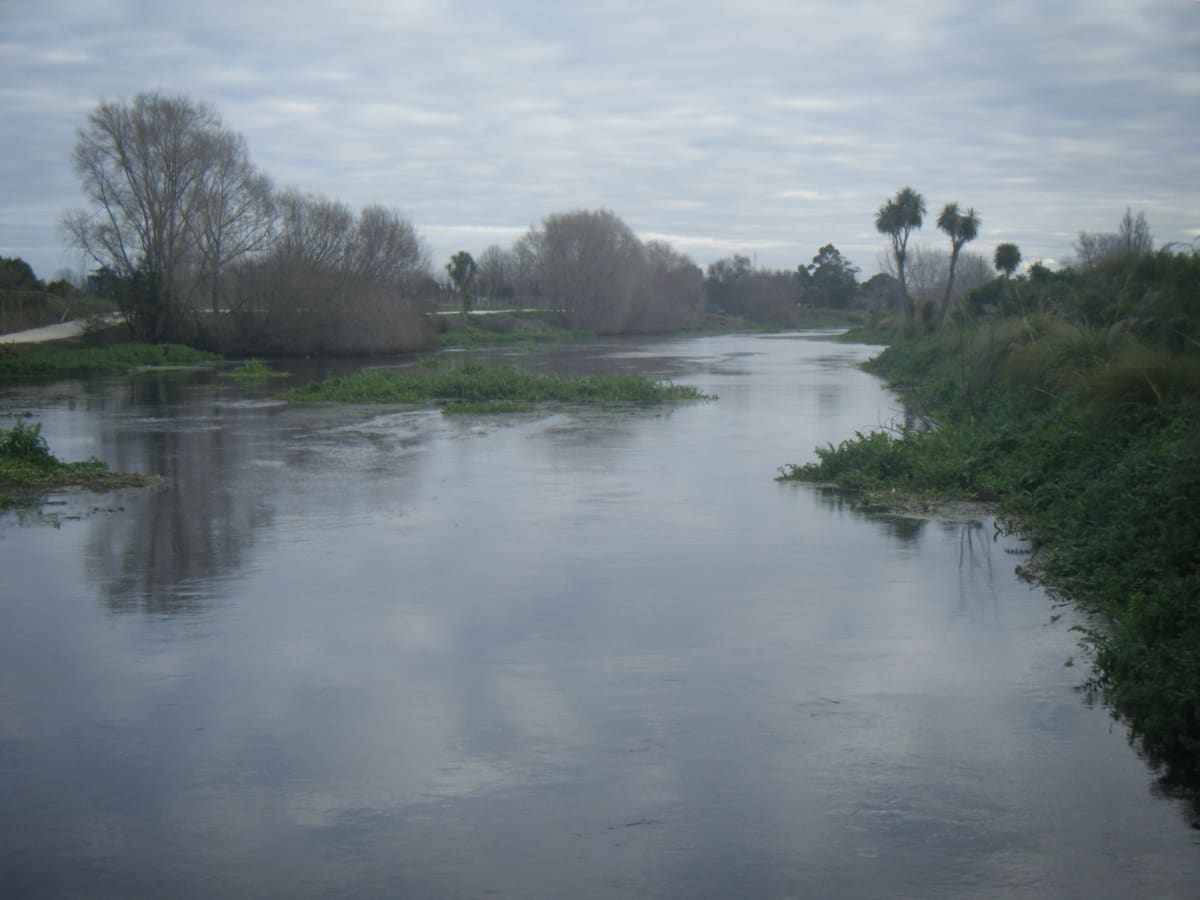
Kaitiaki of the river want a restoration of its original name to coincide with greater protections for what used to be the playground and pantry for local iwi
When Aiki Paipper was growing up on the banks of the river widely known as Clive in Hawkes Bay, abundant resources and the community’s connection to the waterways meant nobody had to go hungry.
“Our parents and our fathers and uncles and grandfathers were all fishermen and the river was just alive with kai,” she said. The older generation would go out fishing and then drop the catch of the day off with kuia and kaumatua all around the area.
She knew the name of the river as Ngaruroro, from the longer name Ngaruroro Moko-tū-ā-raro-ki-Rangatira, which means waves or ripples created by upokororo - a type of endemic freshwater fish that has since gone extinct.
It’s a name with a lot of meaning to Paipper and the people of the area, gifted to the river by tohunga Ruawharo of te waka Takitimu. But in 1975 when it was diverted due to flooding in the area, it was given the name Clive. This was after Robert Clive, the first British governor of Bengal. Clive had not only died 200 years previously, but had never set foot in New Zealand.
Paipper sees the lost name of the river as tied to its environmental status - and with the river flowing through the agricultural hotspot of the Heretaunga Plains, run-off from farms and vineyards have played a part in changing the river. Nowadays, the Hawke’s Bay Regional Council doesn’t suggest taking a dip in Ngaruroro, due to consistently poor water quality.
Now the people of Kohupātiki Marae are calling on the New Zealand Geographic Board to restore the original name of the river and ensure proper consultation with mana whenua. Paipper sees it as the first step in reclaiming a connection with the land she feels has been lost.
“We are suffering from a cultural disconnect from our environment in a sense,” she said. “At the same time, our mauri has been usurped by giving names that are meaningless and have no connection to us.”

Paipper has partnered up with the Green Party with a petition calling for a name change, with the hope that the new name will reignite local iwi’s ability to be guardians for the river.
“By taking the name back I believe we take back that responsibility of taking care,” she said. “We are responsible, and what we want to do is work with councils and get up a catchment plan that everybody can buy into for the good of everybody, not just ourselves.”
Paipper also wants to see more protections for rivers such as Ngaruroro, acknowledging that while many farmers and wine-makers in the area have moved towards sustainable regenerative farming practices, the river is still vulnerable running through such vital farmlands.
“Without a proper catchment plan after this we are just treading water,” she said. “We need resource consents to farm to what the land can hold - not to overcook it, not to beat the living daylights out of the land to make it produce.”
Green Party MP Elizabeth Kerekere has been supporting Paipper’s group to get the name reinstated. She said the local community has shown a lot of support for the movement, with the mayor and councillors signing the petition.
“Part of that is they support it as an issue, but it’s also Aki and the people of that marae,” she said. “Aki has been responsible for replanting the riparian strips of the river and she has worked really closely with local business, the community and council to do all of that work over a long time and I think people see it as the sensible thing - the right thing - to do.”

Kerekere sees a direct connection between the restoration of the name and its chances at an environmental comeback.
“It’s not just a name that we are talking about,” she said. “It’s about the mana of the whole river and the spiritual and cultural connection of the people. Also, long-term it’s about our rivers as our pantries - they are meant to feed us. The restoration of the river and the life it gives to everything inside it is part of the goal, reconnecting people back.”
It's not the first time iwi have tried to reclaim a name, but Kerekere said many of them have been knocked back in the past, such as Ngāti Hori trying to give the name back in 2013.
But she has high expectations of the New Zealand Geographic Board this time.
“The world has changed,” she said. “Things we couldn’t do 10 or 20 years ago - we can do them now, and I continue to have faith that our people can get on board with this type of thing.”
Moreover, she expects that Paipper’s standing in the community and her long-term guardianship of the river will speak for itself.
“The local iwi are not by themselves in this, they’ve got lots of people around them who support what they are doing,” she said. “The application will reflect that.”
The petition is part of a growing call to reclaim Māori place names, with groups like Te Pāti Māori questioning the use of New Zealand as the name of the country and landmarks like Aoraki Mount Cook and Whakaari White Island commonly referred to in both English and Te Reo Māori.







